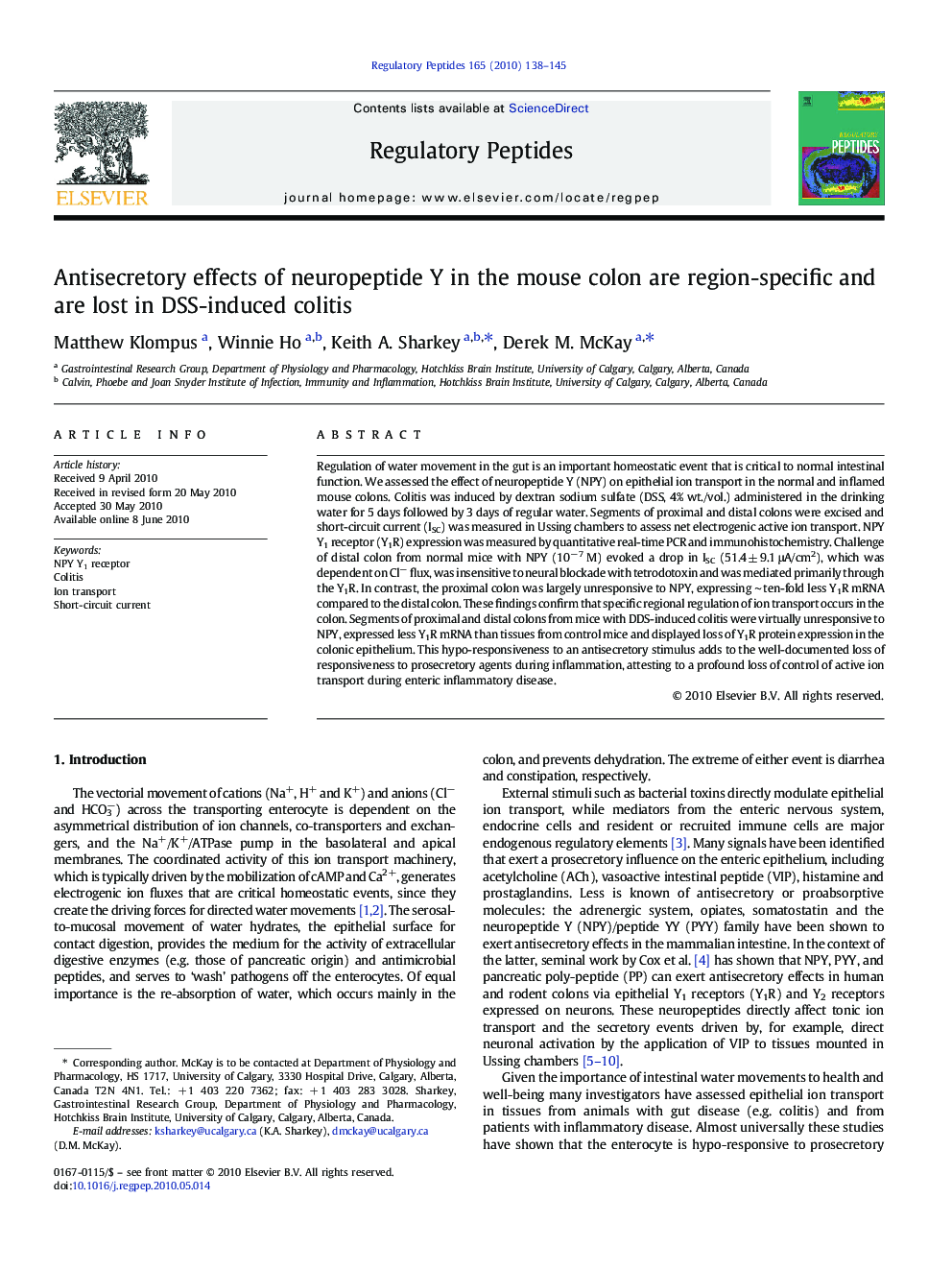| Article ID | Journal | Published Year | Pages | File Type |
|---|---|---|---|---|
| 2022667 | Regulatory Peptides | 2010 | 8 Pages |
Regulation of water movement in the gut is an important homeostatic event that is critical to normal intestinal function. We assessed the effect of neuropeptide Y (NPY) on epithelial ion transport in the normal and inflamed mouse colons. Colitis was induced by dextran sodium sulfate (DSS, 4% wt./vol.) administered in the drinking water for 5 days followed by 3 days of regular water. Segments of proximal and distal colons were excised and short-circuit current (ISC) was measured in Ussing chambers to assess net electrogenic active ion transport. NPY Y1 receptor (Y1R) expression was measured by quantitative real-time PCR and immunohistochemistry. Challenge of distal colon from normal mice with NPY (10− 7 M) evoked a drop in ISC (51.4 ± 9.1 μA/cm2), which was dependent on Cl− flux, was insensitive to neural blockade with tetrodotoxin and was mediated primarily through the Y1R. In contrast, the proximal colon was largely unresponsive to NPY, expressing ∼ ten-fold less Y1R mRNA compared to the distal colon. These findings confirm that specific regional regulation of ion transport occurs in the colon. Segments of proximal and distal colons from mice with DDS-induced colitis were virtually unresponsive to NPY, expressed less Y1R mRNA than tissues from control mice and displayed loss of Y1R protein expression in the colonic epithelium. This hypo-responsiveness to an antisecretory stimulus adds to the well-documented loss of responsiveness to prosecretory agents during inflammation, attesting to a profound loss of control of active ion transport during enteric inflammatory disease.
